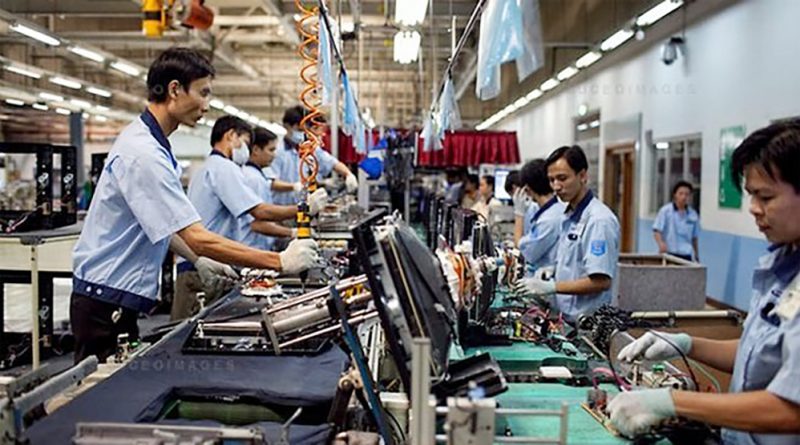Electronics industry faces manpower shortage due to relocation from China
Because of the trend of shifting production from China to Vietnam and the expansion plan, the electronic manufacturing segment is predicted to increase in recruitment demand in 2019, including middle and high-level human resources.
According to report on recruitment demands for senior management level published by Navigos Group, foreign direct investment (FDI) companies in this field have planned to move their factories from China to Vietnam.
Enterprises in the electrical/electronics field in Hai Phong and Bac Ninh province in the last quarter of 2018 had plan to expand business. Besides, new companies will officially operate from the beginning of 2019.
These trends will increase recruitment demand in electronic manufacturing segment this year, including middle and high-level human resources in positions such as plant manager, supervisor; management and assistant level for back office.
Navigos Group’s report also recognized the impact of free trade agreements and FDI on recruitment needs in Vietnam.
Firstly, consumer electronics market continues to be competitive and is expected to increase sharply in recruitment demand after Tet holiday.
Consumer electronics market clearly shows the trend of strongly shifting from traditional sales channels to e-commerce. Companies in this sector all have business expansion plans in 2019 and although the market has been very competitive, there are still niche markets where companies can exploit.
After Lunar New Year, recruitment demand in consumer electronics sector will grow strongly. It is also noteworthy that some companies will enter Vietnam market, and it will be a great opportunity for both candidates and employers.
Secondly, FDI capital streaming into real estate sector will boost recruitment demand.
The report noted that investors are planning to adjust their portfolio (both directly and indirectly), thereby affecting supply chains and FDI inflows into the Real Estate market of Vietnam.
The reason behind this mainly comes from 2 trends: shifting production from China to Vietnam and FDI flow into Vietnam to serve the consumer market in Vietnam and ASEAN.
In 2019, the real estate market is expected to grow steadily. Especially, the condominiums market continues to grow, businesses will focus on recruiting positions related to investment and sales.
In addition, the market in the Northern provinces, especially the neighboring provinces of Hanoi and the concentration of many industrial parks will be very exciting, which lead to the growth in hiring demand.
Thirdly, there are many benefits and challenges for the garment/textile industry before free trade agreements.
The recently concluded Comprehensive and Progressive Agreement for Trans-Pacific Partnership – CPTPP will bring many benefits to Vietnam’s textile and garment industry, strongly boosting exports, along with the competitive workers’salary in Vietnam, will attract more FDI inflows, from which many new jobs will be created.
In addition, multinational companies are operating in China, and both Chinese domestic companies in the fields of textiles, footwear, sporting goods, etc. tend to shift orders and production activities to other countries to avoid high taxation. In ASEAN, Vietnam is considered as the most potential and competitive for the transfer of these businesses.
Lastly, the agricultural sector shows signs of prosperity and more fierce competition in recruiting and retaining talents.
In the fourth quarter of 2018, there are many businesses in the agricultural sector expanding their investment and some businesses that need to standardize human resources. The recruiting competition is getting stronger, many businesses have a need to recruit talent that is more loyal.
Source: e.theleader.vn









